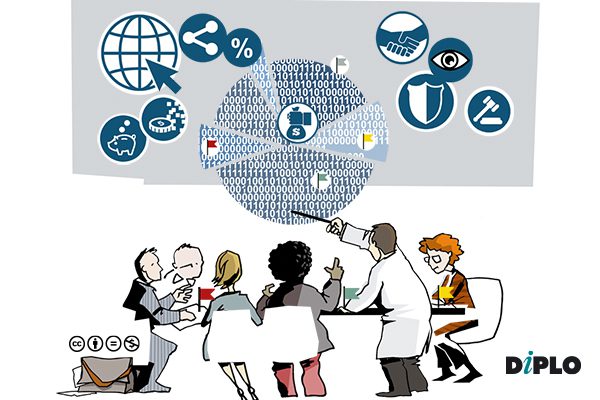Diplomatic policy analysis
Policy analysis is an essential aspect of modern diplomacy, providing the foundational insights that enable states to navigate the complex web of international relations. By examining data, historical trends, and current developments, diplomats can assess risks, forecast outcomes, and craft informed strategies. Recent advances in data analytics, machine learning, and open-source intelligence (OSINT) have transformed policy analysis, making it more precise, inclusive, and actionable. However, these innovations also bring challenges, particularly in ethics and information reliability, that demand thoughtful consideration.
The role of policy analysis in diplomacy
Policy analysis serves as the backbone of diplomacy’s decision-making. It equips leaders and negotiators with the evidence needed to craft strategies that address global challenges, from climate change and trade conflicts to security threats and technological competition. Effective policy analysis requires a multidisciplinary approach, drawing on insights from economics, political science, sociology, and technology to provide a holistic understanding of issues.
In diplomacy, policy analysis is essential for:
- Strategic forecasting: By analysing trends, diplomats can anticipate shifts in geopolitical dynamics and prepare proactive responses.
- Risk mitigation: Assessing trade, cybersecurity, or regional stability vulnerabilities allows policymakers to craft strategies that minimise potential harm.
- Negotiation support: Evidence-based analysis strengthens a country’s position in bilateral and multilateral discussions, providing credibility and clarity.
Global collaboration: Policy analysis helps identify shared interests and opportunities for cooperation, fostering consensus in international forums.
Balancing innovation with responsibility
At Diplo, we’re proudly leading this charge. Our work – from the DiploAI Ecosystem to digital policy training embodies a belief that technology can transform diplomacy when guided by equity and ingenuity. Yet, we remain clear-eyed. The hype around ‘AI doom scenarios’ mustn’t distract from immediate risks—like biased algorithms entrenching inequality or cyberattacks destabilising fragile states.
Policy analysis in the digital age isn’t about choosing between innovation and caution. It’s about weaving them together—using data to empower, not exclude, to clarify, not confuse. As we stride into this future, let’s take inspiration from nature’s playbook: just as ecosystems thrive on diversity, so does diplomacy when it marries cutting-edge tools with grassroots wisdom.The challenge—and opportunity—ahead? To ensure the data revolution doesn’t just serve the powerful but becomes a tide that lifts all boats.
At Diplo, we’re rolling up our sleeves. Join us.
The data revolution in policy analysis
The integration of data analytics into policy analysis has been transformative. Advanced algorithms enable diplomats to process and interpret vast amounts of information from diverse sources, ranging from economic indicators and satellite imagery to social media trends.
- Machine learning for trend identification: Algorithms trained to analyse data can detect emerging patterns, such as shifts in public sentiment or economic fluctuations, long before they are apparent through traditional methods. For instance, machine learning models have been used to predict election outcomes, monitor supply chain disruptions, and identify conflict zones with heightened risk.
- Open-Source Intelligence: OSINT has democratised access to information, enabling states with limited resources to gather insights that were previously the domain of significant powers. Smaller states can engage more effectively in global diplomacy by analysing publicly available data—such as satellite images, news reports, and social media activity. For example, during the COVID-19 pandemic, OSINT was critical in tracking vaccine distribution and public health responses worldwide.
Enhanced collaboration and data sharing: Digital platforms allow diplomatic missions to share data and analysis in real time, fostering coordination across multiple stakeholders. This has proven invaluable during international crises, where timely information can mean the difference between escalation and resolution.
Challenges in policy analysis
While data-driven policy analysis offers significant advantages, it is not without its challenges:
- Misinformation and disinformation: The digital age has amplified the spread of false information, which can distort analysis and misguide policy decisions. Deepfake technology and propaganda campaigns further complicate the task of identifying reliable sources.
- Ethical dilemmas in data collection: Using surveillance technologies to collect data raises questions about privacy, consent, and the potential misuse of information. Diplomats must navigate these ethical challenges while balancing national security needs with respect for human rights.
- Overreliance on technology: While machine learning and analytics are powerful tools, they are not infallible. Overdependence on algorithms without critical human oversight can lead to biased or incomplete conclusions, particularly in complex, nuanced scenarios.
Digital divides: Not all countries have equal access to advanced analytical tools, perpetuating inequalities in diplomatic capabilities. Smaller or developing nations may face barriers to leveraging data-driven policy analysis, limiting their influence in global affairs.
Innovations and the future of policy analysis
The evolution of technology continues to shape the future of policy analysis in diplomacy, offering both opportunities and challenges. Several key trends are emerging:
- AI and predictive analytics: AI-driven models are increasingly capable of predicting geopolitical events, such as conflicts, economic downturns, or natural disasters. These tools enable proactive policy responses, enhancing a nation’s ability to safeguard its interests.
- Blockchain for data security: Blockchain technology offers a decentralised and tamper-proof method for storing and sharing policy-related data, ensuring the integrity of information while protecting against cyber threats.
- Global data collaboratives: Collaborative platforms that unite states, international organisations, and private sector actors hold great promise for advancing shared goals. By pooling data and analytical expertise, these collaboratives can address transnational challenges, from climate change to global health.
Ethical frameworks for data usage: The development of international norms and standards for data collection and analysis is critical to ensuring that technological advancements do not come at the expense of fundamental rights. Organisations like the UN and the EU are working to establish guidelines promoting transparency, accountability, and inclusivity.
Click to show page navigation!





